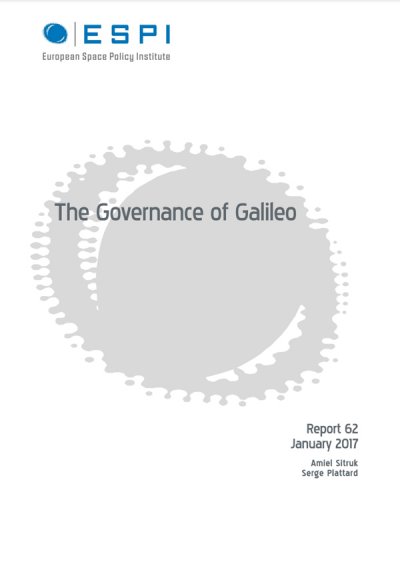The emergence of the EU as a primary actor in European space activities needs new governance schemes to effectively manage the Galileo satellite navigation programme, through governance improvements to optimize its outcomes.
This report identifies the European GNSS Agency’s (GSA) crucial role in security and international cooperation, advocating for its stronger positioning in global governance. It explores the political, economic, and technical challenges associated with Galileo’s governance and the implications of different governance frameworks. The study proposes three scenarios to enhance governance and ensure the programme’s success:
- Maintaining the current GNSS framework with adjustments.
- Creating a single overarching entity to streamline responsibilities.
- Increasing private sector involvement for a commercially driven governance model.
Each scenario has distinct advantages and drawbacks, with the choice depending on political, technical, and strategic priorities. Despite Galileo’s progress, the existing governance structure may not be fully equipped for upcoming challenges. The report provides recommendations for three alternative governance schemes, each requiring varying levels of political commitment and addressing various issues.

